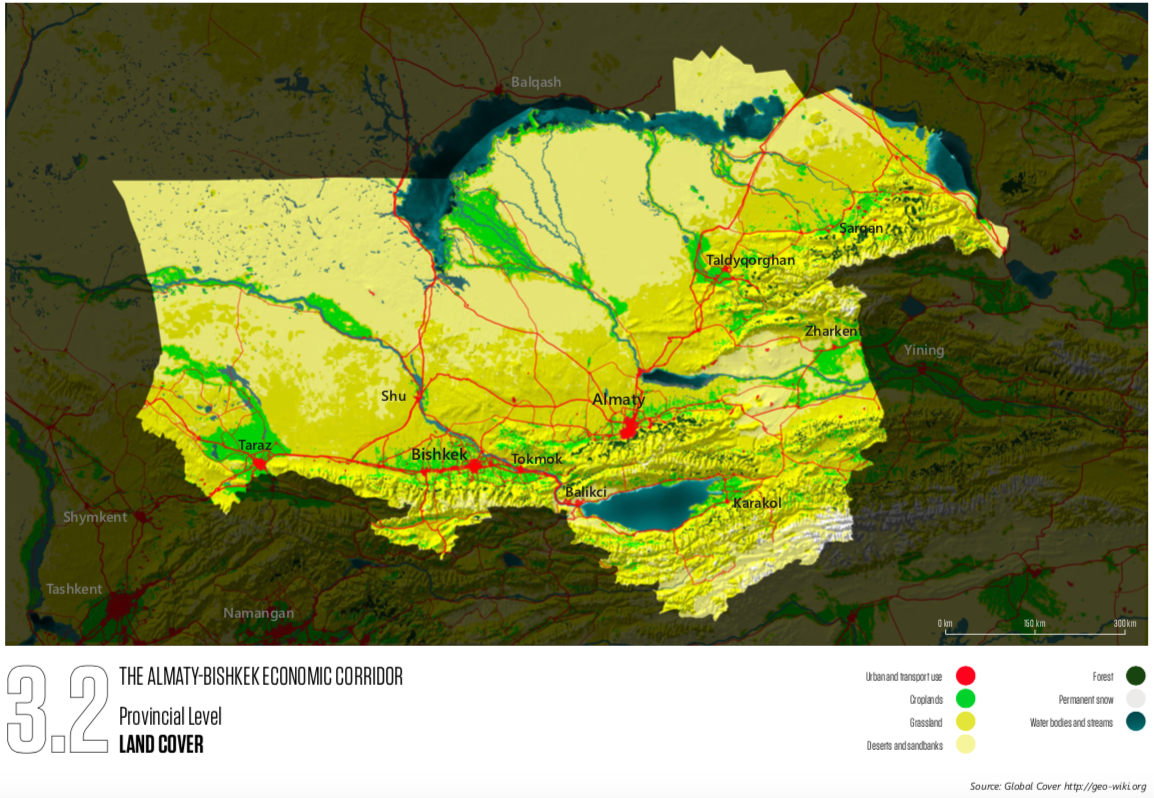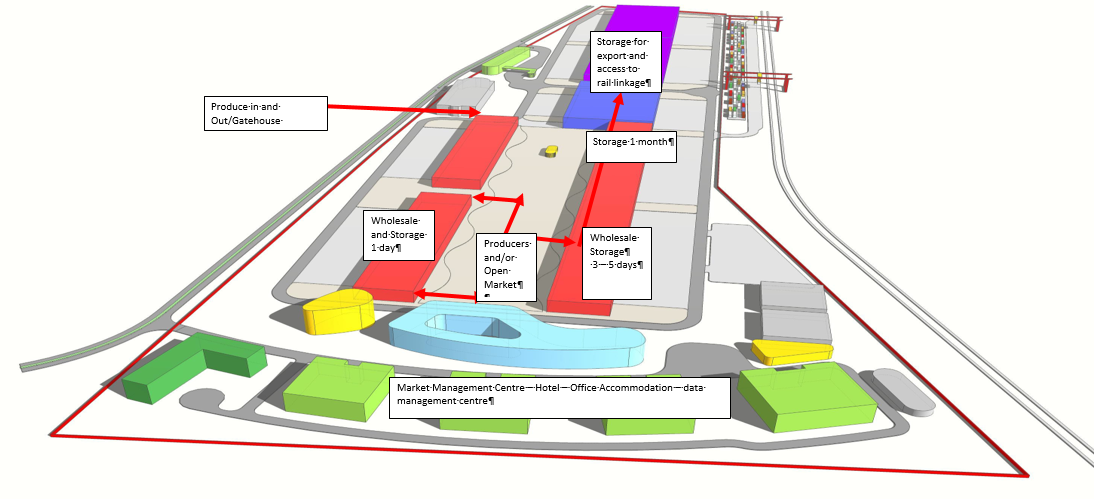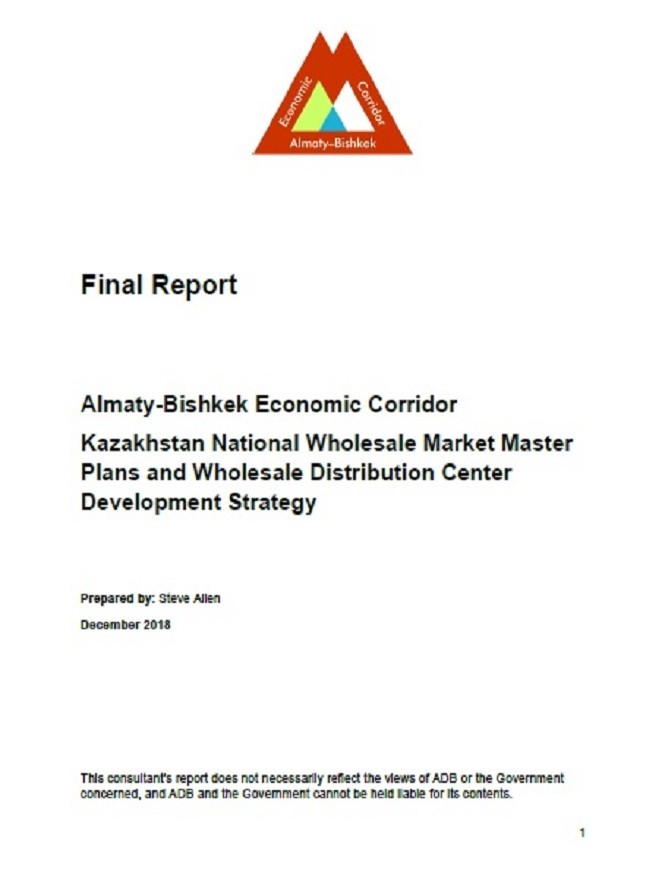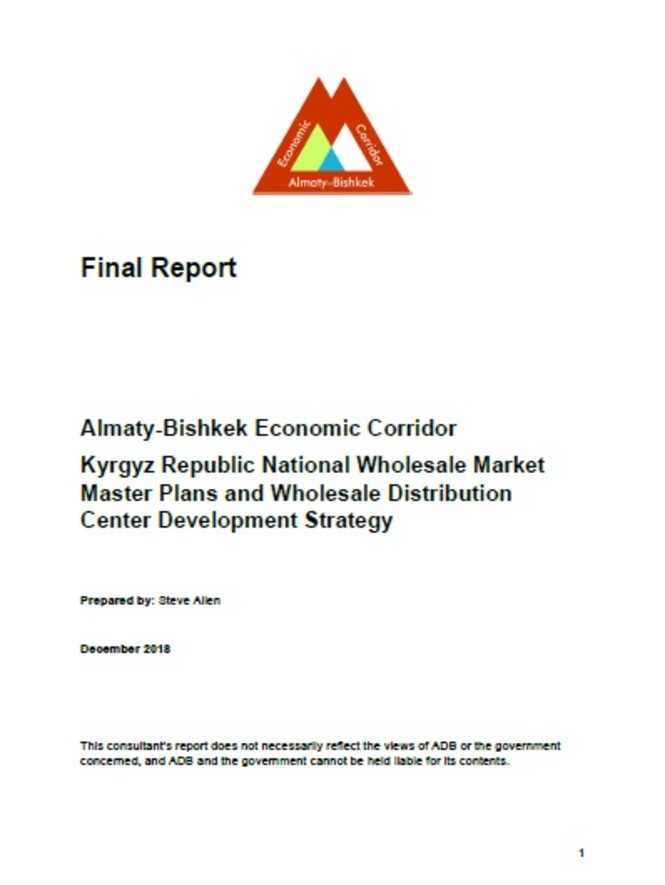In the agriculture sector within the Almaty-Bishkek Economic Corridor, the challenge is to create sufficient scale to overcome distance and trade barriers. Inadequate scale increases unit costs of transportation, certification, branding, and processing of agricultural goods.
Both countries prioritize food security, food safety, and promoting food exports (becoming a net-exporter of agri-products). Under ABEC national master plans for wholesale markets were prepared, which includes a strong regional element. Around 30% of the food products traded in Almaty are imported from Bishkek. Based on these master plans, a project concept has been developed to establish modern WSMs within the corridor.
The project will support the modernization of WSMs to improve food safety, food security, and increase food trade within and outside the region. Modern WSM infrastructure will facilitate certification for exports, traceability systems, and most importantly, transparent market access and storage of fresh produce. As a result, market demand will allow for production growth and deliver incentives for quality, which will benefit small- and medium-sized producers in the region. The project will further integrate cross-border value chains, mainstream SPS controls and improve storage and logistics infrastructure.

What is the rationale for modern WSMs in ABEC:
- Food security:
- High import dependency in January to June for horticulture products
- Winter food imports from PRC or from/through Russia result in high prices
- Low producer margins limits production expansion and investment
- Limited use of fertilizers, pesticides, green houses, coordinated production of stallholders
- Increasing vertical concentration of ownership in food value chains is already resulting in price setting market power for horticulture products
- Ad-hoc trading on a daily basis results in uncoordinated distribution of fresh products, leading to increased food waste and a higher degree of price fluctuation, amplified by lack of appropriate storage facilities
- To reduce price volatility, the government incurs costs to maintain a strategic reserve in staples
- Food safety:
- Informal trade of horticulture products without certification of origin or quality leads to incomplete information for consumers and constrains export market access—the system of trust and relationship benefits existing players
- Constrained cold-chain logistics limit shelf-life of fresh produce
- Sanitary and Phytosanitary control systems and certification not yet in place on wholesale markets or major production points
- Better grading of horticulture produce into processing, domestic consumption and export quality will improve value chain efficiency
- Economic Diversification:
- Kazakhstan and the Kyrgyz Republic are net-food importers as exports are dominated by mineral exports
- Growing horticulture production call for formal export channels and promotion through certification, labeling, and customs clearance on wholesale markets to facilitate further agri-sector growth
- Aggregation, cold storage, grading, and pre-processing will increase exports and creates value domestically
- Full-service wholesale market can export high-quality produce and send important signals to producers (standards of production)
- Informal agricultural trade results in low tax collection from trading horticulture products

Who is benefiting from modern wholesale markets:
Producers: Enhanced negotiation power and incentive to improve by ‘pull-factor’: quality, certification, brands, aggregation, higher margins due to reduction in spoilage
Consumers: safe and high-quality fresh food – improved stability of prices and supply
Wholesalers/operators: safe and attractive space for operations - fairer competition due to information transparency
Retailers: diverse and safe offer of fresh products - stability of purchasing prices - close to the city, close to their business – good services in the market: parking, delivery, picking
Exporters: confidence and higher price premium due to standardization
Governments: tax revenues, better oversight, less costs for strategic reserves



